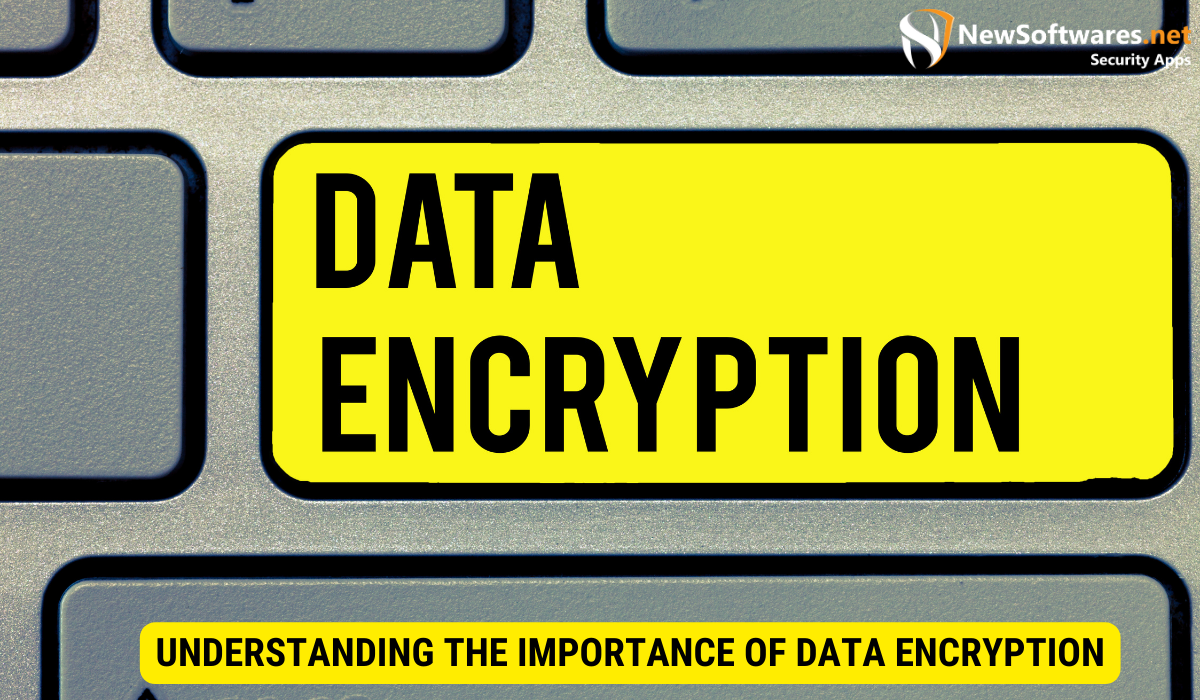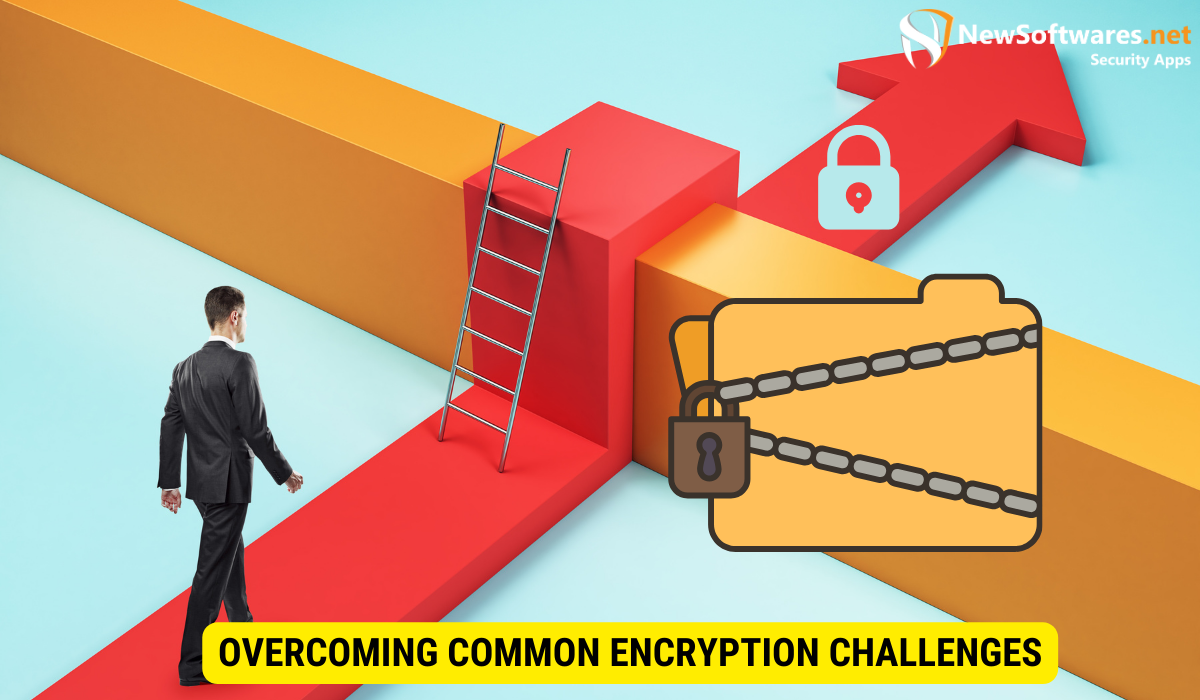Data security is a supreme concern in today’s digital age. With cyber threats becoming more complicated, it is crucial for folks and organizations to take preventive measures to protect their sensitive information. One of the most effective ways to ensure complete data security is by encrypting all data on your computer drive.
Understanding the Importance of Data Encryption

Data encryption is the route of converting plain text or data into an scribbled format, known as ciphertext, using encryption algorithms. This ensures that even if illegal individuals gain access to your data, they would not be able to decode it without the encryption key. Encryption is vital for data security for several reasons.
When it comes to protecting sensitive information, encryption acts as a reliable safeguard. It goes beyond simply putting a lock on your data; it protects data confidentiality by rendering it unreadable without the appropriate decryption key. This is especially crucial for industries that hold highly confidential data, such as healthcare, finance, and government sectors.
But encryption doesn’t stop at confidentiality; it also plays a crucial role in data integrity. By encrypting data, it ensures the authenticity and integrity of the information by preventing any unauthorized modifications or tampering during transmission or storage. This means that even if someone manages to intercept the data, they won’t be able to alter it without the decryption key.
Additionally, encryption helps in establishing trust with customers, partners, and stakeholders. By implementing encryption measures, organizations demonstrate a commitment to data security and privacy. This, in turn, builds confidence among customers who are increasingly concerned about the safety of their personal information.
The Role of Encryption in Data Security
Encryption acts as a reliable safeguard for sensitive information. It protects data confidentiality by rendering it unreadable without the appropriate decryption key. This is especially crucial for organizations that hold highly confidential data, such as healthcare, finance, and government sectors.
Encryption also plays a crucial role in data integrity. It ensures the authenticity and integrity of the data by preventing any unauthorized modifications or tampering during transmission or storage. Additionally, encryption helps in establishing trust with customers, partners, and stakeholders, as it demonstrate a commitment to data security and privacy.
Furthermore, encryption is an essential component of data security because it helps organizations comply with various data protection regulations. Many jurisdictions require organizations to implement encryption for protecting personal, financial, and health-related data. By encrypting data, organizations can ensure compliance with these regulations and avoid severe legal and financial consequences.
Risks of Not Encrypting Your Data
Failing to encrypt your data can expose you to various risks. Hackers and cybercriminals constantly exploit vulnerabilities to gain unauthorized access to sensitive information. Without encryption, your data becomes an easy target, leaving you weak to identity theft, financial loss, and reputational damage.
Moreover, non-cooperation with data protection regulations can result in severe legal and financial consequences. Many jurisdictions require organizations to implement encryption for protecting personal, financial, and health-related data. Failure to fulfill with these rules can lead to hefty fines and damage to your business’s reputation.
Furthermore, not encrypting your data can also have a harmful impact on customer trust and loyalty. In today’s digital age, customers are more aware and concerned about the security of their personal information. If they discover that your organization does not prioritize data encryption, they may choose to take their business elsewhere, resulting in a loss of customers and potential revenue.
In conclusion, data encryption is a crucial aspect of data security. It not only protects sensitive data from illegal access but also ensures data integrity and compliance with regulations. By implementing encryption measures, organizations can safeguard their information, build trust with stakeholders, and mitigate the risk associated with data breaches and non-compliance.
Basics of Data Encryption
Before considering encrypting all data on your computer drive, it is essential to understand the fundamentals of data encryption.
What is Data Encryption?
Data encryption involves transforming data into an unreadable format to prevent illegal access. This is achieved through the use of cryptographic algorithms and encryption keys. The encryption process ensures that only endorsed individuals with the decryption passcode can access and read the encrypted data. Encryption algorithms can be symmetric or asymmetric, each with its own advantages and use cases.
Different Types of Data Encryption
There are various types of data encryption techniques available, including Symmetric Encryption, Asymmetric Encryption, and Hash Functions. Symmetric encryption uses a single key for both encryption and decryption, making it faster and more efficient. Asymmetric encryption, also known as unrestricted key encryption, uses a couple of keys: a free key for encryption and a confidential key for decryption. Hash functions, on the other hand, generate a fixed-size output, known as a hash value, based on the input data.
Steps to Encrypt All Data on Your Computer Drive
Now that you understand the importance of data encryption and the basics of encryption, let’s dive into the steps involved in encrypting all data on your computer drive.
Preparing Your Computer for Encryption
Before you begin the encryption process, it is essential to back up your data. This ensures that you have a duplicate of your data in case any issues arise during the encryption process. It’s also a good practice to update your operating system and ensure that all your software is updated, as outdated software may have vulnerabilities that hackers can exploit.
Choosing the Right Encryption Software
There are several encryption software options available, each with its own features and encryption algorithms. Research and choose encryption software that meets your precise needs and offers a high level of security. Look for software that supports strong encryption algorithms and provides regular updates to stay ahead of emerging threats.
The Process of Encrypting Your Data
Once you have selected the encryption software, follow the software’s instructions on how to encrypt your data. This will likely involve creating an encryption key or passphrase and selecting the files or folders you want to encrypt. Remember to choose a strong passphrase that combines upper and lower case letters, numbers, and special characters for maximum security.
The encryption process may take some time, depending on the size of your data. It’s crucial to let the process complete uninterrupted to ensure all your data is encrypted properly. Once the encryption process is complete, your data will be protected and only accessible with the encryption key or passphrase.
Maintaining Your Encrypted Computer Drive
Encrypting your data is just the first step towards complete data security. It is equally important to maintain your encrypted computer drive to ensure ongoing protection.
Regularly Updating Your Encryption Software
Software update frequently include security patches that address any vulnerabilities in the encryption software. Regularly updating your encryption software ensure that you have the latest security against emerging threats and helps maintain the integrity of your encrypted data.
Safeguarding Your Encryption Keys
Encryption keys are crucial for accessing your encrypted data. It is essential to safeguard your encryption keys by keeping them in a secure location separate from your computer. Consider using a password manager or hardware-based encryption solutions to store and manage your encryption keys securely.
Overcoming Common Encryption Challenges

Despite the numerous benefits, data encryption can present some challenges that need to be addressed.
Dealing with Forgotten Passwords
Forgetting the encryption key or passphrase can be a major issue as it makes the encrypted data inaccessible. To stay away from this, consider using a password manager that securely stores your encryption keys and passwords. Additionally, create strong, memorable passwords or passphrases and consider implementing password recovery options available in the encryption software.
Ensuring Smooth Data Recovery
In the event of data loss or system failure, it’s crucial to have a backup plan to ensure smooth data recovery. Regularly back up your encrypted data to an external storage device or cloud-based backup service. This will ensure that even if your computer or hard drive fails, you can still recover your important data.
Key Takeaways
- Data encryption plays a critical role in ensuring complete data security.
- Encrypting all data on your computer drive protects against unauthorized access and data breaches.
- Choose the right encryption software, update it regularly, and safeguard your encryption keys.
- Prepare your computer for encryption and make sure to back up your data before starting the encryption process.
- Regularly update your encryption software and have a plan for data recovery in case of system failure.
Frequently Asked Questions
Why is data encryption important for computer drives?
Data encryption is vital as it ensures data confidentiality, integrity, and compliance with regulations, protecting sensitive information from unauthorized access and tampering.
What risks do I face if I don’t encrypt my computer data?
Failing to encrypt data exposes you to cyber threats, legal consequences, and risks of losing customer trust, potentially resulting in data breaches and financial losses.
How can I choose the right encryption software for my computer?
Research and select encryption software that supports strong encryption algorithms, provides regular updates, and meets your specific security needs.
What should I do if I forget my encryption key or passphrase?
Use a password manager to securely store your encryption keys and create memorable, strong passwords or passphrases. Consider implementing password recovery options offered by encryption software.
How can I ensure smooth data recovery in case of system failure?
Regularly back up your encrypted data to an external storage device or cloud-based backup service to ensure data recovery even in the event of computer or hard drive failure.
Conclusion
Complete data security is a necessity in today’s digital landscape. By encrypting all data on your computer drive, you can protect yourself and your sensitive information from unauthorized access and data breaches. Understanding the importance of data encryption, choosing the right encryption software, and following the necessary steps to encrypt your data will help ensure maximum protection. Regularly updating your encryption software and maintaining your encrypted computer drive are vital for ongoing data security. By overcoming common encryption challenges and implementing best practices, you can safeguard your data and enjoy peace of mind.
